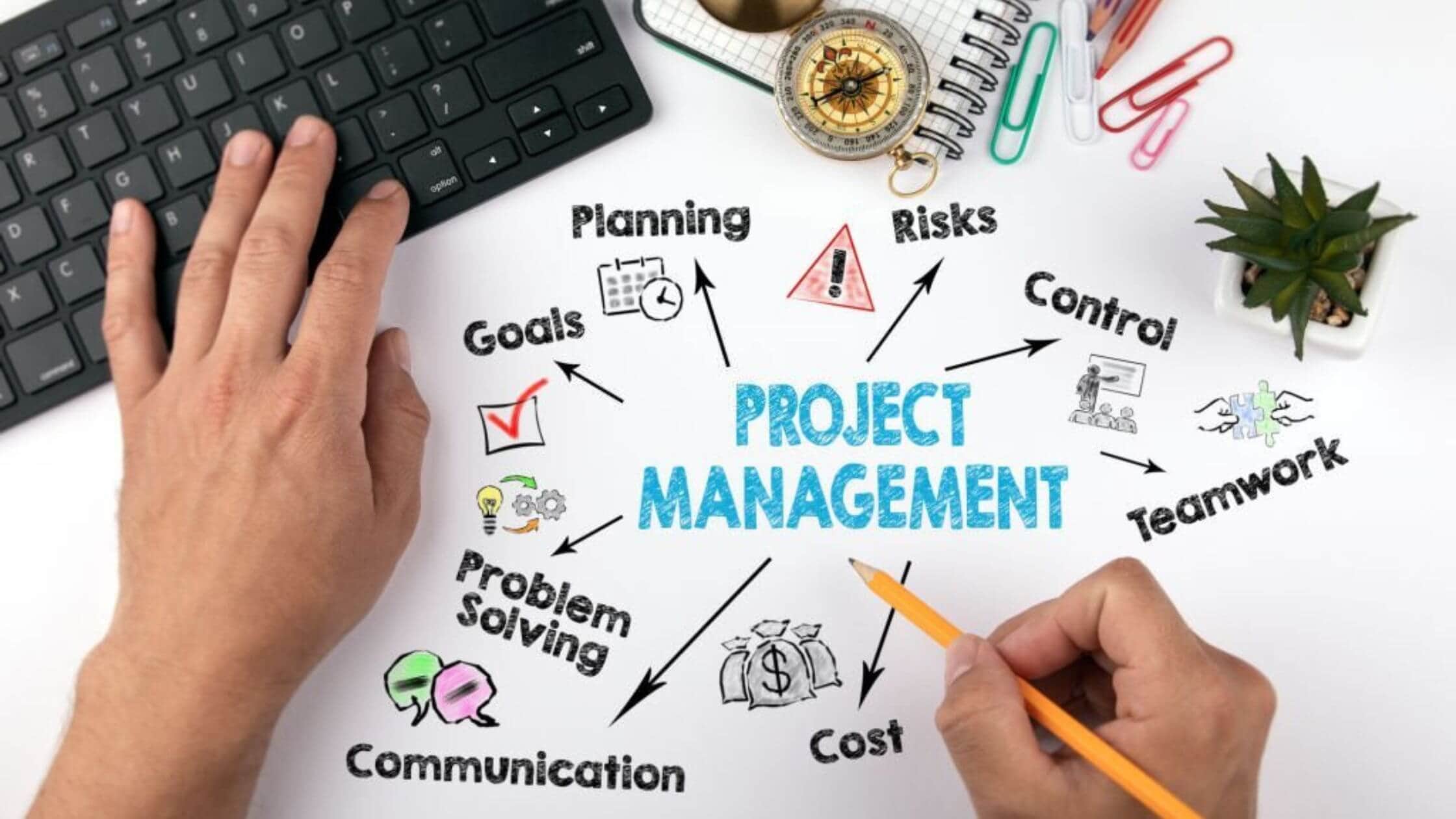

Among all of the PM knowledge areas, Cost Management is one of the most important areas. Projects often include a large variety of resources. Every part of the project that has a budget attached needs to be considered, from materials such as tools and equipment to personnel. Each one of these elements creates a specific cost that needs to be properly managed in order to complete the project within budget.
As an example, you may need to acquire tools and materials or plan a budget for paying salaries for project personnel on the team. In the Project Cost Management knowledge area, you’ll learn more about how to allocate such tools, resources, and a proper budget for all aspects of a project.
Keep in mind that the project process is documented and controlled with the help of predetermined PM templates. You will be able to see free online project management templates to use as a reference for how PM templates work.
It is important to be familiar with details of Cost Management and other important factors related to Cost Management. A PMP training course is the perfect tool to help you become familiar with all of the important items you need to know during the PMP exam. Most training courses will also provide samples of the PMP exam prompts related to the Cost Management knowledge area. As you prepare to apply for the PMP, plenty of training information, along with some questions, will assist you in becoming familiar and comfortable answering questions in this knowledge area.
Cost Management Explained
Cost Management includes the steps needed to finish the deliverables within the appropriate budget. This knowledge area helps to identify the required budget to finish the project and then operates to control and monitor the costs to meet the approved budget.
The Project Budget is a major component of this knowledge area. Once the project scope is defined and activities are agreed upon, each project outcome and project activity will be evaluated for cost. The project resources will have costs associated with them, such as expenses, salary, and more. There will be materials and equipment that also need to be accounted for during the project, which will again require an approved budget.
This area of study will focus on the total cost of materials needed to finish the deliverables of a project. Once the budget is agreed upon, cost management will measure and monitor the success of the project in relation to the budget.
There are 4 processes associated with Cost Management:
- Plan Cost Management
- Estimate Costs
- Determine Budget
- Control Costs
Why Cost Management is So Essential
Cost Management explores how to budget costs for a project while mentoring and controlling updates on the project.
Cost Management in Project Management – The Plan Cost Management Process
The first step consists of planning the cost management process. Here, it is important to determine a budget, as well as estimate all costs and management of expenses.
The Cost Management plan is the key deliverable of this process, as it outlines how to manage the budget and costs of the project.
Two Important Terms to Remember:
- “Life cycle costing” is a term that claims everything that is produced has a shelf life.
- “Value engineering” means performing the same work for a far less cost.
Estimate Costs Process
The estimate costs process is the next step in the cost management knowledge area. Cost estimation for each project activity, materials, and equipment is evaluated in this step. After these estimations are made, the overall budget is predicted and agreed upon.
Different Types of Costs:
- Fixed costs – no matter what, you will need a space to complete your project, such as an office. This will be included in your project budget.
- Material costs – these are expenses for project personnel, which will depend on the number of people working and the amount of materials needed.
Inputs for Estimating Costs:
All cost estimation is based on inputs, and these inputs are extremely important. The accuracy of estimates is crucial for defining a clear estimation of how much the overall project will cost.
Determine Budget Process
The next process in the cost management focus area is to Determine Budget Processes. Once all estimations are complete, the budget estimations are totaled, and the final project cost is agreed upon.
The Project Budget will consist of a few parts. Once activity cost estimates are finalized, there will be contingency reserves added, which can be in the form of a management reserve or others.
Control Costs Process
The Control Costs section is the final step in the cost management knowledge area. This process works to manage the expenses and finish the project without going over budget.
What is Progress Reporting?
Progress reporting for project management is also extremely important. This is because progress reporting allows the project manager to tell if the future activities will be accomplished with the current budget. Each of these reports must be communicated to stakeholders of the project, too.
Earned Value Management Explained
The final component of cost management knowledge is Earned Value Management. Earned Value calculations will show if you are over or under the project budget. These numbers are important for deciding if the project will meet the project schedule and budget estimates or if the Project Manager needs to make alternative arrangements.
We hope this article helps you better understand the 4 main processes of cost management. Best of luck on your PMP journey!
Taking the PMP exam? Know this first!
PMP Training Course: Why Take It Online?
Sign-up for a 7-day free trial!
Try the first two modules of our story-based PMP and CAPM Exam Prep courses and a mini practice exam and see how it all works
The PMP exam is offered by the PMI and can now be taken online!


